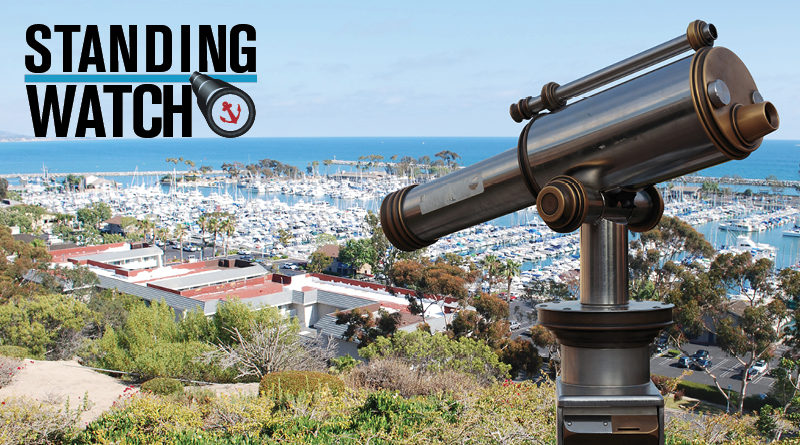Who’s in charge at NOAA and why does it matter?
Can a federal agency, which predicts hurricanes and other weather patterns, function without key leadership?
NATIONWIDE — One of the strongest storms in more than a decade slammed into Texas’ Gulf Coast in late August, immediately spurring questions of whether federal response to the destructive path of Hurricane Harvey had proper leadership in place.
Both the National Oceanic and Atmospheric Administration (NOAA) and Federal Emergency Management Agency (FEMA) were without “permanent” leadership when Harvey arrived in Southeast Texas and Louisiana.
Pres. Donald J. Trump, in all fairness, did make a pair of FEMA nominations a few weeks ahead of Harvey. Those nominees, if approved by senators, would fill two of the top three politically appointed positions at the emergency response agency. The nominations could still be weeks away from approval, however, meaning holdovers from the previous presidential administration would assume FEMA’s acting leadership.
NOAA, the agency in charge of weather forecast and monitoring, also features an acting leader at the helm.
The nuance between acting and permanent director has absolutely zero bearing on FEMA’s or NOAA’s immediate responses to Harvey’s aftermath. Both agencies are equipped to handle the basic functions of emergency response, with or without a politically appointed leader at the helm.
Harvey has been quite the destructive storm, which, sadly, already cost lives. The full extent of Harvey’s wrath will take months to determine. It is here – the long play – where permanent or established leadership becomes a noticeable factor.
Having acting or interim directors – which is currently the case at FEMA and NOAA – usually means there is a lack of accountability or clear policy direction.
What happens, for example, when FEMA’s response to the Harvey cleanup is somehow delayed due to bureaucratic haggling, or NOAA’s data is not properly transmitted in the event weather conditions worsen?
Now maybe Trump sees himself as a buck-stops-here executive. Trump, after all, regularly cites the accomplishments of Harry Truman, who occupied the White House in the late 1940s and early 1950s. Truman, for those who need a refresher, might best be known for his line, “The Buck Stops Here.”
FEMA and NOAA administrators will have so much to learn from Harvey, and what the federal agencies do with their respective analyses of every scenario during the response could – and should – affect future action. No doubt we’ll witness an event similar to Harvey again. Enhancing policies and adjusting responses to address future disasters is directly affected by FEMA’s and NOAA’s respective actions during Harvey.
What can we do to minimize the loss of life? What improvements need to be made to federal, regional and local responses? Can preventative measures be implemented to protect us from the next major storm? Who is held responsible when the agency falters in its management of an emergency?
Of course there’s the issue of insurance. Can we do better at controlling costs and insurance liabilities? What can federal administrators do to protect the insurance rights of waterlogged homeowners? A new law potentially limiting or delaying insurance claims just went into effect in Texas on Sept. 1, for example. Insurance providers could take months or years to determine payouts. What happens if legitimate claims are denied? Would the federal government – particularly the forecasting and emergency response agencies – be held accountable or otherwise position themselves to come to the aid of victims?
These questions and more need to be asked and answered. Accountability requires someone at the helm who has a sense of permanence in his or her position, with more weight than an “acting” or “interim” tag.
None if this is to suggest current administrators will botch its handling of Harvey’s destruction. The question we should be asking ourselves, instead, is whether we’re doing enough to make sure we’re even more prepared for the next storm than we were for Harvey, and better equipped during the following storm, and so on.
We live in an era where so much frustration is directed toward the government. The current presidential administration has taken action to reduce the scope and function of the federal government – which might just explain the lack of urgency in filling certain appointments within NOAA or FEMA. Earlier this year a representative from Florida introduced a bill to abolish the Environmental Protection Agency.
Making a case for limiting the reach of the federal government certainly has its merits, but the extent of such limitation will certainly be tested during these next few weeks and months. And what happens in light of Harvey could set a precedent for federal responses to major emergencies in Southern California, especially if coastal flooding or predicted sea level rise events become more severe in waterfront communities such as Coronado, Newport Beach, Long Beach and San Pedro.


